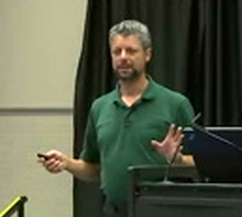Comparison of C++ Format and C library's printf -- Victor Zverovich
 The C
The C printf family is still the gold standard of performance for formatted I/O, but woefully fragile and inextensible. C++'s iostreams offers important advantages in type safety, but struggles with performance and internationalization.
A number of projects, such as Boost.Format, try to the advantages of both. Here's further discussion about one such library we linked to recently:
Comparison of C++ Format and C library's printf
by Victor Zverovich
From the article:
I was recently asked on GitHub why would someone use fmt::printf, which is a part of the C++ Format library, over the standard C library printf. This is a fair question and so I decided to write this blog post comparing the two.
Disclaimer: I’m the author of C++ Format, so this is all very biased =).

 While we wait for CppCon 2015 in September, we’re featuring videos of some of the 100+ talks from CppCon 2014. Here is today’s feature:
While we wait for CppCon 2015 in September, we’re featuring videos of some of the 100+ talks from CppCon 2014. Here is today’s feature: While we wait for CppCon 2015 in September, we’re featuring videos of some of the 100+ talks from CppCon 2014. Here is today’s feature:
While we wait for CppCon 2015 in September, we’re featuring videos of some of the 100+ talks from CppCon 2014. Here is today’s feature: If you are confused about the topic, read this article:
If you are confused about the topic, read this article: While we wait for CppCon 2015 in September, we’re featuring videos of some of the 100+ talks from CppCon 2014. Here is today’s feature:
While we wait for CppCon 2015 in September, we’re featuring videos of some of the 100+ talks from CppCon 2014. Here is today’s feature: